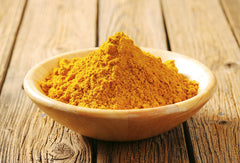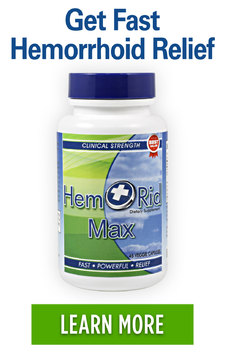Is It Possible to Cure Piles? Discover the Secret & Shocking Truth About Piles Cures
Posted on 12 September 2018 by Maryanne Johnson
Share this post
Is It Possible to Cure Piles? Are you having trouble going to the bathroom? Do you have pain in the form of aching, discomfort, and intense to extreme itching? If you have answered “yes” to any of these questions, then you could be experiencing piles, known as its more formal terminology, haemorrhoids.
Piles are widely experienced by people who are fifty years old and older. About half of adults in the United Kingdom will develop piles, but not all seek immediate medical care for them.
Piles are an anorectal condition that has been around for centuries, and if you are in search for an end-all treatment or cure, then unfortunately, you are out of luck. Despite piles being around for so long, for as long as humans have had rectal veins, there is no cure for this condition.
About Cures for Piles
If you have never had piles before and are curious as to what this disease is, you should know that piles are categorized into two different types.
Symptoms and appearances of these two types of piles differ slightly, but in reality, the causes and reasoning behind their development are the same.
Piles, generally speaking, are swollen anal cushions, with inflammation being caused by something interrupting and restricting the blood flow.
Internal and external piles are the two types that this inflammation is classified under.
People who have internal hemorrhoids usually don’t have many symptoms. The lack of symptoms is due to where internal hemorrhoids are located, which is inside the lowest part of the rectum.
Internal piles are the inflamed veins running along the inside of the rectal canal.
Inside the rectum, there is an absence of nerves that transmit pain to the brain. Usually, inflamed rectal veins are uncomfortable and painful at times, but because of the location of this inflammation, many people do not know they have internal piles.
One of the only symptoms that indicated a sign of internal piles is painless rectal bleeding.
Again, the lack of nerves that feel and sense pain make this symptom of anorectal bleeding go unnoticed. It is only when people check the bowl of the toilet or reach to wipe after a bowel movement that they notice this sign of internal piles.
External piles can be impeding everyday activities and are undoubtedly the most painful type of hemorrhoid. There are more nerves where external form, which is under the skin in the anal area, surrounding the anus.
External piles take shape as bumps—raised, inflamed veins covered by the anorectal skin, these veins are sensitive to any movement and can significantly hinder activities and cause difficulty when going to the toilet.
Numerous symptoms can be experienced with external piles. Typically, as previously discussed, bumps form around the anal opening.
Many people with external piles have a hard time passing stools and keeping the rectal area clean because of the pain.
Piles Bumps Can Be Painful
These bumps are painful, but along with this symptom, you can experience other problems like itchiness on the anus, the lumps, and the sensitive anorectal skin. You may feel throbbing, aching, and a burning feeling of the rectum.
These symptoms can last for a few days to a little over a week until the haemorrhoids subside on their own.
Symptoms can be overwhelming and stop you from enjoying your daily routine. The symptoms alone are why so many patients of hemorrhoids have searched for a cure or a surefire treatment.
While there is not a cure for piles, there are a few at-home tricks you can try to decrease the intensity of symptoms and make your life a little easier until the piles go away within a few days.
Do Cures for Piles Exist?
There is no cure for piles, but there are cost-effective ways you can prevent and treat symptoms to make the few days hemorrhoids are at their worst a little more manageable.
Your GP may have a different list of recommendations more attune to what he or she feels will work best for you, your piles, and your body, but in general, there are tried and true methods that seem to work for most everyone.
Does Fibre Cure Piles?
Healthcare physicians advise that additional fibre in the diet is part of the "cure" for hemorrhoids, meaning that this nutrient may be the closest step in saying goodbye to piles for prolonged periods of time, and maybe even for good.
Soluble fibre is necessary for healthy stools and a normal, healthy colon, which all contribute to the prevention of piles.
Piles are inflamed veins, connective tissues, and other bodily components responsible for transporting blood to the rectal area, and so by increasing your intake of fibre, you can place less stress and pressure on these veins, vessels, and tissues.
Do Exercise and Hydration Cure Piles?
Exercise and hydration are crucial in prevention as well.
Hydration helps the stools moist and more comfortable to pass during bowel movements, where exercise promotes healthy circulation, keeping the veins functioning correctly to prevent inflammation in the rectal area.
Do Changes to my Diet Cure Piles?
Modification of what you eat and how you live is the closest thing to a cure for piles. Many people will always develop piles at some point in their lives, but with the right steps of prevention, hemorrhoid flare-ups can be kept at a minimum.
As part of a temporary “cure” of symptoms, suppositories, creams, and other topical treatment methods can work to relieve the itching, burning, and pain of piles.
Are Supplements Able to Cure Piles?
There are hemorrhoidal supplements that utilize herbs and other ingredients known to support venous sufficiency, which is essential in resolving inflammation and swelling of the rectal veins.
Topical treatments are applied on the anus for anal itching or on the external piles themselves to help subside burning and throbbing.
Wipes can be used following a bowel movement to clean the rectal area gently and to target anal itching and help reduce swelling.
Suppositories are inserted in the rectum after a bowel movement to offer immediate relief of pile symptoms.
Wipes with witch hazel, supplements with butcher’s broom and horse chestnut, and creams that utilize hydrocortisone are all popular and widely used methods of treatment that can temporarily aid in alleviating symptoms of internal and external piles.
Complications of Piles
If you do not treat your piles or let your GP know about your symptoms, you could be putting yourself at risk. The symptoms of piles can be similar to other anorectal diseases, even cancerous ones.
Depending on your age and other factors, your GP may wish to perform additional examinations, like a colonoscopy, to ensure that the symptoms described are those of hemorrhoids and not anorectal cancer.
Other complications involve an internal hemorrhoid extending past the rectum, becoming touchable and visible, inducing discomfort and worsening pruritus ani, anal itching.
Internal piles are rated in Grades, and so when the piles progress in the grades, the worse the prolapse can become.
Earlier stages of prolapsed hemorrhoids can be resolved by reinserting the hemorrhoidal column with your finger, gently guiding the column back inside the rectal canal.
However, Grade IV hemorrhoids can become irretrievable and must be resolved with surgical options.
External hemorrhoids have their own set of complications. Blood clots can form inside the swollen veins and as you can imagine, the pain becomes immensely worse and practically intolerable.
Sharp tings of pain can occur when a blood clot forms, known as a thrombosed haemorrhoid.
Can You Cure Thrombosed Piles?
A thrombosed hemorrhoid should be resolved by your GP and can usually be treated in-office. Your physician will likely lance and drain the blood clot safely to prevent infection. It is crucial that you do not try this yourself.
There are surgical options available for people who have reoccurring or severe hemorrhoids. But even with surgical options becoming more and more prevalent, this is still not considered to be a cure for piles.
Piles can still come back, even with intense and involved surgery that removes hemorrhoid columns or cuts off the blood supply and forces them to fall off. Inflammation can occur again, especially if you do nothing to modify your diet or lifestyle.
Ultimately, prevention is vital, and like with other medical issues, focusing on your diet to ensure you are eating healthy and getting plenty of fibre is proven to be the most effective way to keep piles from developing.





0 comments